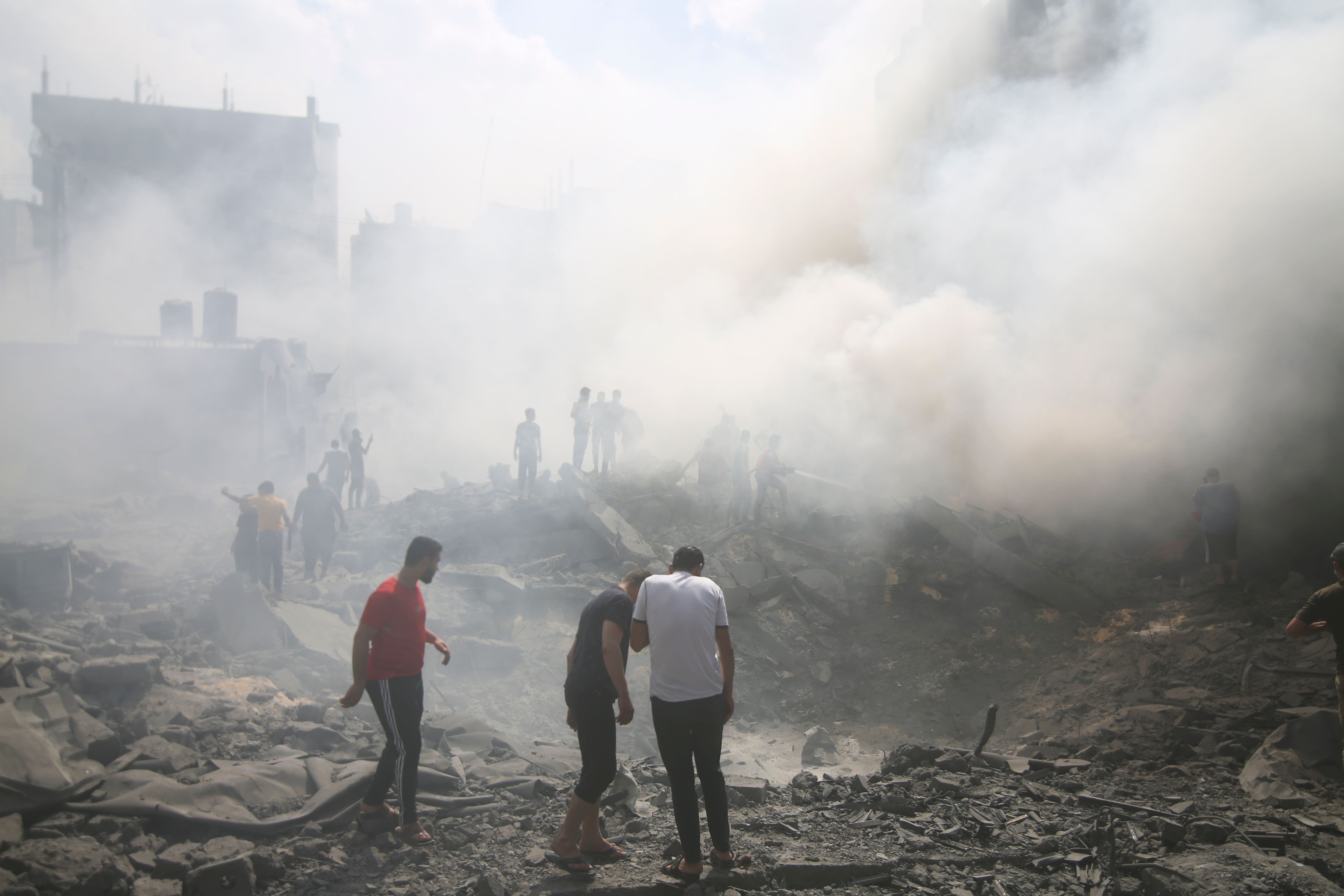Israel engaging in collective punishment in Gaza, Taoiseach says
Leo Varadkar called for the opening of a humanitarian corridor to allow aid to reach Palestinians.

Your support helps us to tell the story
From reproductive rights to climate change to Big Tech, The Independent is on the ground when the story is developing. Whether it's investigating the financials of Elon Musk's pro-Trump PAC or producing our latest documentary, 'The A Word', which shines a light on the American women fighting for reproductive rights, we know how important it is to parse out the facts from the messaging.
At such a critical moment in US history, we need reporters on the ground. Your donation allows us to keep sending journalists to speak to both sides of the story.
The Independent is trusted by Americans across the entire political spectrum. And unlike many other quality news outlets, we choose not to lock Americans out of our reporting and analysis with paywalls. We believe quality journalism should be available to everyone, paid for by those who can afford it.
Your support makes all the difference.Israel is engaging in collective punishment and does not have the right to breach international law in its response in Gaza, Irish Premier Leo Varadkar has said.
The Taoiseach also called for the opening of a humanitarian corridor to allow aid to reach Palestinians.
The war, which was ignited by a wide-ranging Hamas attack into Israel, has already claimed at least 2,600 lives on both sides.
Israel has cut off food, water and electricity to Gaza in response to the attack on Saturday and has carried out airstrikes in the region.
An Israeli military spokesman said on Thursday that they are preparing for a ground offensive in Gaza, but that one has not yet been ordered.
Israel has the right to defend itself, but Israel doesn't have the right to do wrong
International humanitarian law says the collective punishment of a group of persons for a crime committed by an individual is forbidden.
Mr Varadkar told RTE: “Israel has the right to defend itself, but Israel doesn’t have the right to do wrong.
“Israel is a country that is surrounded by enemies, brutal savage groups like Hamas and Hezbollah, countries like Iran, often supported by Islamic fundamentalists and antisemites around the world.
“So Israel is under threat. They do have a right to defend themselves, but they don’t have the right to breach international humanitarian law.
“And I’m really concerned about what I’m seeing happening in Gaza at the moment.
“To me, it amounts to collective punishment. Cutting off power, cutting off fuel supplies and water supplies, that’s not the way a respectable democratic state should conduct itself.”
Israel’s strike on Gaza has levelled entire neighbourhoods, killing more than 1,400 people, more than 60% of them women and children, according to the Gaza health ministry.
More than 340,000 have been displaced, or 15% of Gaza’s population.
The Taoiseach said that Israel is breaching humanitarian law through its punishment of Palestinian civilians and that Ireland will endeavour to see the opening of a humanitarian corridor to allow aid to reach Gaza.
“I believe by targeting civilians and by cutting off civilian infrastructure that is a breach of international humanitarian law and I think it’s very important for us as Ireland to make sure that that voice is brought to the table at European Union level,” he said.
“So yes, Hamas should release all of the hostages immediately. Israeli citizens and dual citizens alike.
“Israel is entirely justified in going after Hamas in Gaza and elsewhere, but operations that clearly affect civilians disproportionately are wrong, cutting off electricity, cutting off water. That’s not acceptable.
“And one thing we definitely need to see happen now, and we will do anything we can through the UN to achieve this, is the opening of the humanitarian corridor between Egypt and Gaza.”
Speaking in Belfast on Thursday Sinn Fein President Mary Lou McDonald said Ireland’s political history and experience of peacebuilding can have an influence in the international discussion on the current crisis in the region.
“In terms of the Middle East and Ireland and our historical experience of colonisation, partition, war and conflict, and then peacebuilding, I think we need to really leverage all of that experience in good faith to the very, very best of our ability and I think that we can have an influence,” she said.
“I don’t want to overstate it, but equally I wouldn’t understate the value of an Irish voice.
“And we’re encouraging everybody right across political life north and south, and for particularly those in government in Dublin to really grasp that opportunity.”
She added: “We need immediate ceasefires. We need dialogue. We need a process of peacebuilding. We need the application of international law across the board.”